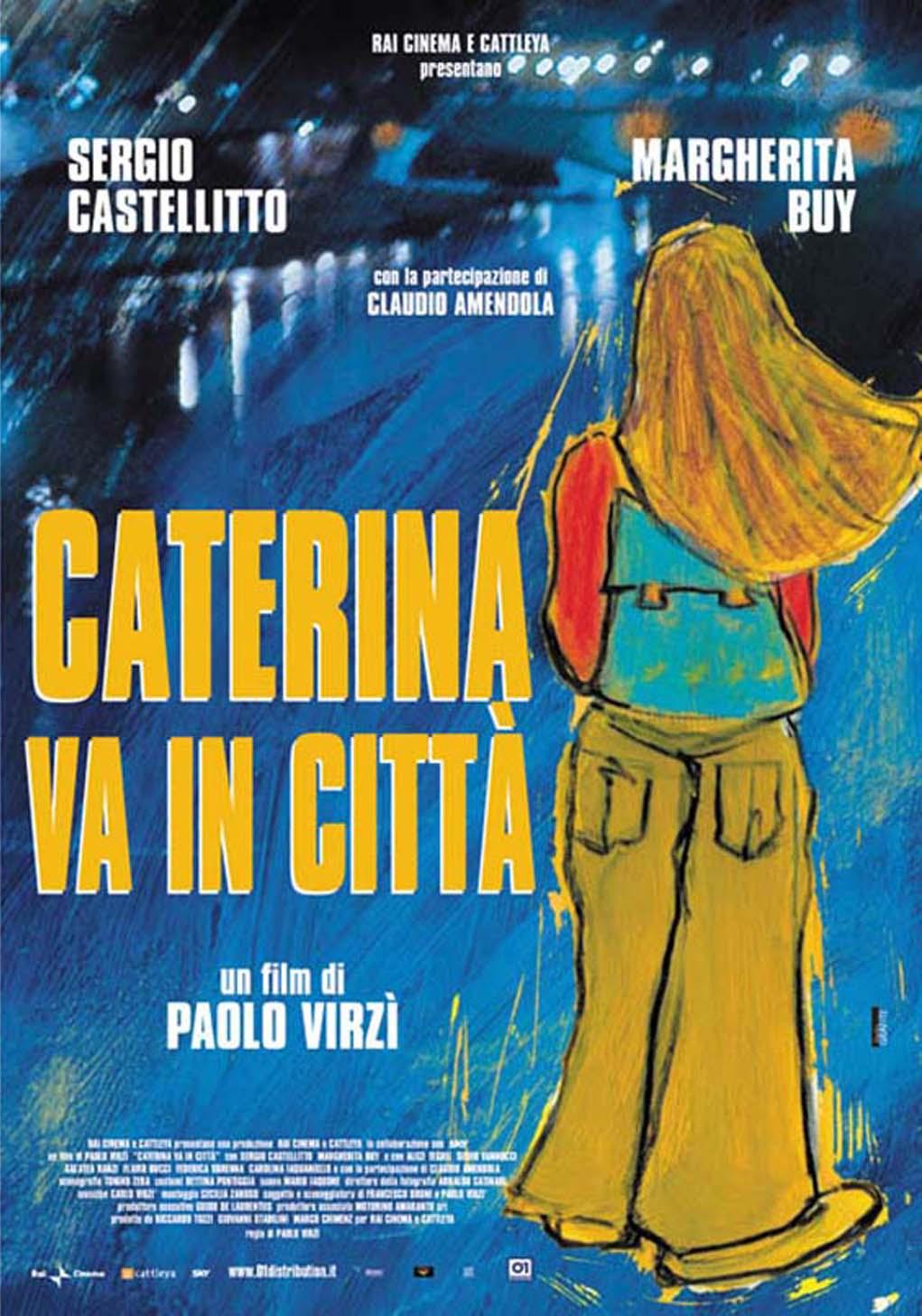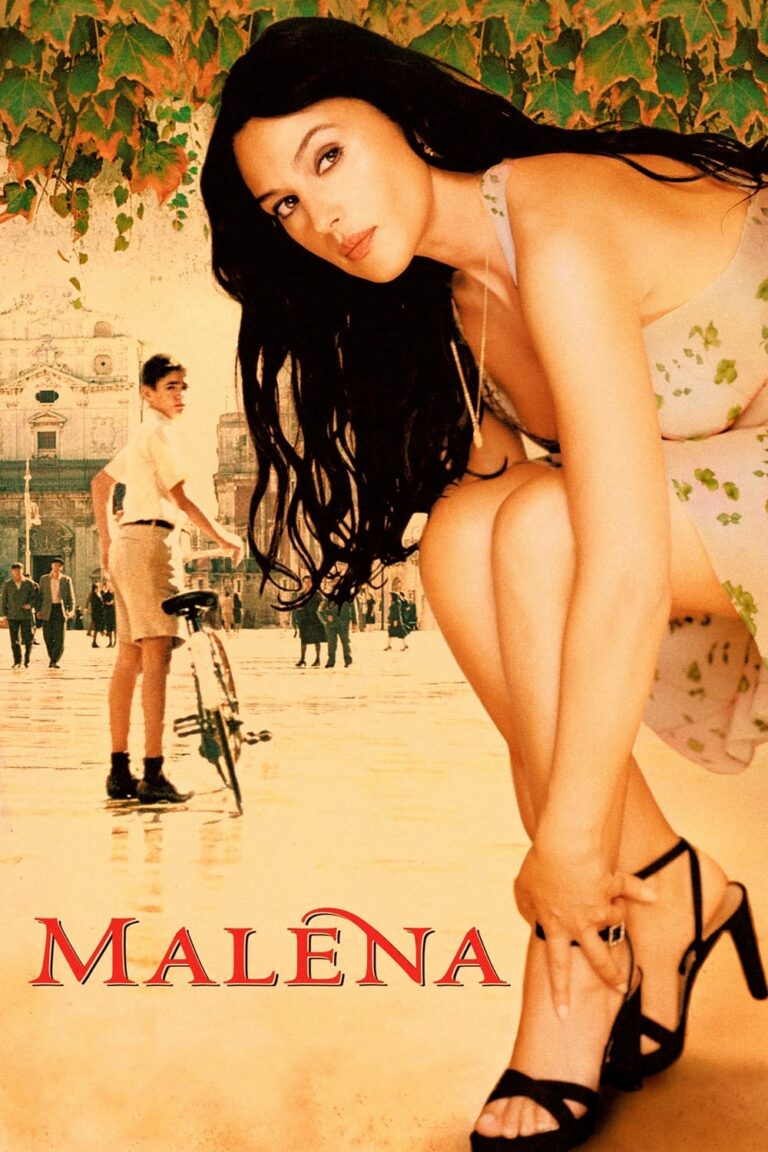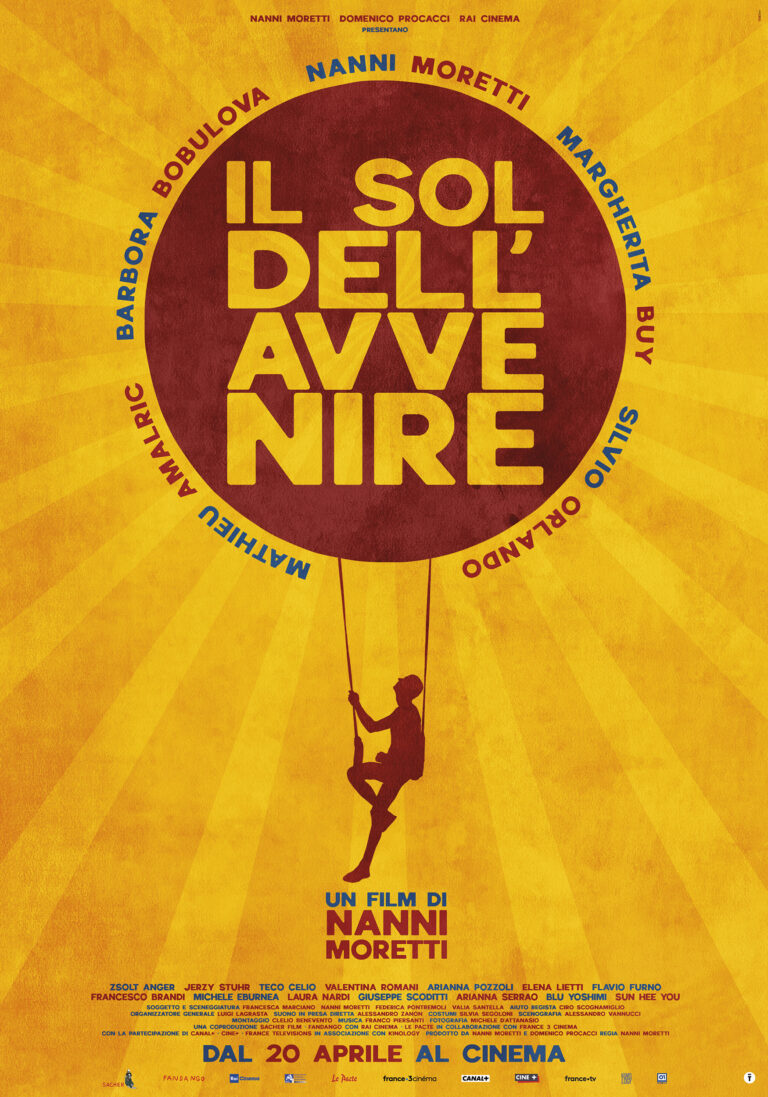
Caterina in the Big City (Caterina va in città), directed by Paolo Virzì and released in 2003, is an Italian coming-of-age film that explores the complexities of adolescence, identity, and societal divisions in modern-day Rome. With its blend of humor, poignancy, and social commentary, the film paints a vivid portrait of a young girl caught between conflicting ideologies, cultures, and expectations. Caterina in the Big City is not just a story about growing up; it’s a reflection on the cultural and political landscape of Italy in the early 2000s.
Plot Overview: Caterina’s Journey
The film follows Caterina Iacovoni (played by Alice Teghil), a shy and optimistic 13-year-old girl who moves from a small coastal town to bustling Rome when her father, Giancarlo (Sergio Castellitto), takes a job teaching at a local high school. Giancarlo, an ambitious but frustrated intellectual, dreams of social mobility and recognition, while Caterina’s mother, Agata (Margherita Buy), is a sweet and passive woman who tries to hold the family together.
Caterina’s life changes dramatically when she enrolls in a prestigious Roman school, where she is thrust into a world of cliques, privilege, and contrasting ideologies. Her classmates are divided into two factions: the politically radical left-wing group led by Margherita (Carolina Iaquaniello) and the affluent, conservative right-wing group led by Daniela (Federica Sbrenna). Caterina finds herself drawn to both groups at different points, struggling to find her place amidst the chaos of adolescence and the polarized political environment of her peers.
As Caterina navigates the social dynamics of her new school, she must also contend with her father’s increasing frustrations and outbursts, her mother’s quiet suffering, and her own desire to fit in while remaining true to herself.
Themes in Caterina in the Big City
1. Adolescence and Identity
At its heart, Caterina in the Big City is a coming-of-age story. Caterina’s journey mirrors the universal challenges of adolescence: navigating peer pressure, discovering one’s identity, and dealing with family dynamics. Her oscillation between different groups reflects the confusion and experimentation typical of this stage in life.
2. Social and Political Commentary
The film offers a sharp critique of Italy’s polarized political and social climate in the early 2000s. Through the microcosm of Caterina’s school, the film depicts the tension between leftist intellectuals and right-wing elites, highlighting the divisions that permeate Italian society.
3. Family Dynamics
Caterina’s relationship with her parents forms a central part of the narrative. Her father, Giancarlo, is a tragicomic figure—intelligent and well-read but embittered by his lack of success. His obsessive need for recognition contrasts with Agata’s quiet, nurturing presence, creating a family dynamic that is both dysfunctional and deeply human.
4. Urban vs. Rural Life
The contrast between Caterina’s quiet life in the countryside and the fast-paced, chaotic world of Rome underscores the cultural and lifestyle differences between Italy’s rural and urban areas. This juxtaposition highlights the challenges of adaptation and the loss of innocence that often accompanies such transitions.
Characters and Performances
Caterina Iacovoni (Alice Teghil)
Alice Teghil delivers a heartfelt performance as Caterina, capturing the character’s vulnerability, optimism, and determination. Her portrayal resonates with anyone who has ever felt out of place in a new environment or struggled to define themselves.
Giancarlo Iacovoni (Sergio Castellitto)
Sergio Castellitto is both comedic and tragic as Giancarlo, Caterina’s father. His portrayal of a man torn between his aspirations and his reality adds depth to the film, making him both sympathetic and deeply flawed.
Agata Iacovoni (Margherita Buy)
Margherita Buy shines as Caterina’s mother, Agata, bringing warmth and tenderness to the role. Her quiet strength contrasts with Giancarlo’s bluster, making her a stabilizing force in the family.
Margherita and Daniela (Carolina Iaquaniello and Federica Sbrenna)
These two classmates represent the polarized world Caterina must navigate. Margherita, the radical leftist, and Daniela, the wealthy conservative, both embody exaggerated but recognizable archetypes of their respective ideologies.
Cinematography and Setting
The cinematography by Arnaldo Catinari captures the contrast between Caterina’s two worlds: the serene, sunlit beauty of her coastal hometown and the chaotic, crowded streets of Rome. The school itself becomes a visual representation of division, with its opulent architecture and stark social cliques reflecting the broader societal tensions depicted in the film.
Humor and Satire
Paolo Virzì’s signature blend of humor and social commentary shines throughout the film. The exaggerated behaviors of Caterina’s classmates and their parents provide moments of sharp satire, while Giancarlo’s frequent outbursts add a tragicomic element. The film balances these lighter moments with its more serious themes, creating a narrative that is both entertaining and thought-provoking.
Critical Reception and Awards
Caterina in the Big City was met with widespread critical acclaim upon its release, praised for its blend of humor, social critique, and heartfelt storytelling. The performances of Alice Teghil, Sergio Castellitto, and Margherita Buy were particularly lauded.
The film won several awards, including:
- David di Donatello Awards: Best Supporting Actress (Margherita Buy)
- Nastro d’Argento Awards: Best Screenplay and Best Supporting Actress (Margherita Buy)
Critics commended Virzì for his ability to capture the essence of Italian society while maintaining a focus on Caterina’s personal journey.
Why Caterina in the Big City Remains Relevant
Nearly two decades after its release, Caterina in the Big City continues to resonate with audiences. Its themes of adolescence, identity, and societal division are timeless, and its exploration of Italy’s cultural and political landscape remains relevant in today’s polarized world. Caterina’s story is a reminder of the challenges and triumphs of growing up, and the film’s humor and humanity make it a classic of Italian cinema.
Conclusion: A Beautifully Crafted Coming-of-Age Story
Caterina in the Big City is a masterful blend of humor, drama, and social critique. Paolo Virzì’s direction, combined with stellar performances and a richly layered narrative, creates a film that is both deeply personal and universally relatable.
Through Caterina’s eyes, audiences are invited to reflect on their own journeys of self-discovery, as well as the societal forces that shape our lives. Caterina in the Big City is more than just a film about growing up—it’s a poignant exploration of the connections and divisions that define us all.





